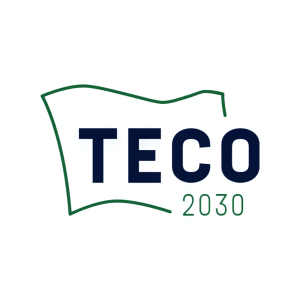TECO 2030 Completes Production of First Fuel Cell Stack
TECO 2030 has announced the successful production of the world's first fuel cell stack designed for heavy-duty and marine applications. This milestone, celebrated in Vancouver, represents a significant step towards launching a fuel cell factory in Narvik, Norway, aimed at decarbonizing the maritime industry. The fuel cell stack, generating a net output of 100 kW, will serve in multiple pilot projects in 2023. Production will ramp up for automated manufacturing by early 2024, with TECO 2030 targeting substantial greenhouse gas reductions in heavy-duty sectors.
- Successful production of the world's first fuel cell stack for heavy-duty and marine applications.
- Plans for pilot projects in 2023 indicate ongoing business development.
- Targeting greenhouse gas reductions in heavy-duty industries, presenting significant market potential.
- None.
Insights
Analyzing...
LYSAKER, NORWAY and VANCOUVER, BC / ACCESSWIRE / December 15, 2022 / TECO 2030 (OSE:TECO, OTCQX:TECFF, ISIN:NO0010887516) is pleased to announce the completed production of the world's first fuel cell stack developed and purposely designed for heavy-duty and marine applications.

Picture text: From left Tore Enger, Group CEO TECO 2030 and Tor Erik Hoftun, EVP Operations.
"It's amazing to be able to physically touch the first TECO 2030 fuel cell stack. I would like to thank all the team members at TECO 2030 and our development partner AVL who have worked hard to ensure this project has progressed according to schedule over the past months and years, enabling us to proceed with several pilot projects during 2023," says Tore Enger, CEO of TECO 2030.
The occasion was celebrated in Vancouver, Canada, where AVL has its global center of excellence for proton exchange membrane (PEM) fuel cell stacks. Key management from TECO 2030 and AVL, as well as several investors of TECO 2030, took part in the event.

"It's great to see the fuel cell stack that TECO 2030 is industrializing inching towards serial production." said Falko Berg, Manager and Technical Product Responsible PEM Systems at AVL List. "Today's milestone marks the next logical and important step towards launching the fuel cell factory in Narvik, its class-leading fuel cell system and finally decarbonizing the marine industry," Berg adds.
A fuel cell stack consists of a number of individual stack cells, each generating electricity from electrochemical reactions based on fuels such as hydrogen. TECO 2030's fuel cell stack contains a few hundred stack cells and provides a net output of 100 kW. The stacks are then combined together with balance of plant (BoP) components into a fuel cell module. TECO 2030 plans to assemble and test the first FCM400 (Fuel Cell Module 400 kW) during the summer of 2023 at AVL's s facility in Graz, Austria.
Several modules, in turn, can be combined to supply the megawatts of output needed for applications such as ship propulsion, auxiliary power and other heavy-duty applications.
"Following the milestone announced today, we will gradually increase production during 2023 to supply fuel cell systems for a number of pilot projects, followed by automated volume production at our gigafactory in Narvik, Norway, from early 2024," Enger adds.
TECO 2030 has recently announced several pilot projects that will proceed in 2023, covering fuel cell systems for marine applications, trucks and construction sites.
"TECO 2030 is targeting heavy-duty industries where the emissions of greenhouse gases are substantial and where batteries will have to be supplemented by fuel cells to provide a viable alternative to fossil fuels. Today, we took a major step on the road to decarbonization in these areas," says Enger.
Contact:
TECO 2030: Tore Enger, Group CEO of TECO 2030, +47 920 83 800, tore.enger@teco2030.no
About TECO 2030:
TECO 2030 accelerates the green transition in the maritime sector by delivering technology that helps ships to reduce their environmental and climate impacts. TECO 2030 is developing hydrogen fuel cells that enable ships and other heavy-duty applications to become emissions-free. The company is also developing other solutions that can help the maritime industry to reduce its emissions, such as exhaust gas cleaning and carbon capture systems for ships. TECO 2030 was founded in 2019 and is headquartered at Lysaker, Norway. The company is listed on Euronext Growth on Oslo Stock Exchange under the ticker TECO. TECO 2030 has its roots in the TECO Maritime Group, a group that has provided technology and repair services to the global shipping industry since 1994. For more information, please visit www.teco2030.no
About AVL:
AVL List GmbH ("AVL") with its headquarters in Graz, is one of the world's leading mobility technology companies for development, simulation and testing in the automotive industry, and in other sectors. Drawing on its pioneering spirit, the company provides concepts, solutions and methodologies for a greener, safer and better world of mobility.
AVL constantly expands its portfolio of high-end methodologies and technologies in the areas of vehicle development and testing. With a holistic approach - from ideation phase to serial production - the company covers vehicle architectures and platform solutions including the impact of new propulsion systems and energy carriers.
To achieve the vision of climate-neutral mobility, AVL drives innovative and affordable solutions for all applications - from traditional to hybrid to battery and fuel cell electric technologies.
AVL's passion is innovation. Together with 10,700 employees at more than 90 locations and with 45 Tech and Engineering Centers worldwide, AVL is supporting customers in their mobility ambitions. In 2021, the company generated a turnover of 1.6 billion Euros, of which
SOURCE: TECO 2030 ASA
View source version on accesswire.com:
https://www.accesswire.com/731931/TECO-2030-Completes-Production-of-First-Fuel-Cell-Stack






